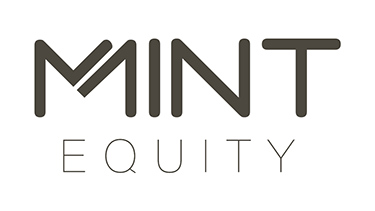Nobody likes to hear the phrases ‘housing bubble’ or ‘credit crunch’ but if you own property and plan to buy or sell in the near future, you need to know if the market is going to change dramatically.
Often a ‘bubble’ and a ‘crunch’ go hand in hand, as property values fall, lending becomes more risky. On the flip side, if lending becomes tighter, there are fewer buyers who can borrow to buy, and property prices can decline.
But what if you throw in a government initiated Royal Banking Commission that scrutinises every detail of the credit and lending system in a public forum?
Pressure builds, and crack start to appear.
Banks are under pressure
The Royal Banking Commission is unintentionally driving drastic changes within the big banks and second tier lenders, even before findings and recommendations are delivered. With mounting pressure to do the right thing, banks are changing internal processes and credit policies to sure up their position around responsible lending. Rather than waiting until the RC is finalised, banks are making changes to rebalance the damage they have already done.
This is resulting in tighter credit policies, reduced lending options and internal process changes – to the detriment of the consumer.
We’re in the middle of a mini credit crunch
Over the past 12 months, housing credit has increased by 6.0% which is its slowest annual increase since March 2014. Doesn’t sound like much, but a slowdown in credit can impact the property market significantly. If there are less buyers who can secure a home loan, the demand for property drops, as does the value.
In an interview with Sky News radio host Kieran Gilbert on Wednesday, Treasurer Scott Morrison remarked that the government will need to “very carefully” watch for tightening of bank lending as a result of the royal commission, noting that there is a risk this tightening could come at a bad time for housing markets.
“Credit is important in our economy. Our banks are the strongest in the world. So, this is a big financial asset for us. We don’t want to go and undermine that by creating unnecessary regulation which basically constricts and suffocates the economy.”
Guess what Scott, it’s already happening.
How home loan approvals are affected by the mini credit crunch
Bank credit approval teams are now so fearful of approving a home loan, they are making it even harder for consumers to secure finance for either an investment or owner-occupied property.
To help recover some costs from the Major Bank Levy and the hefty fines placed on the major banks from their previous bad behaviour, banks are cutting costs internally.
Major redundancies, management changes, and focus on digital and automating systems and processes, banks cutting costs by reducing the options for upfront property valuations, is just one example. Some lenders have brought the service in house to save costs, others now won’t allow a property valuation to be actioned until a loan application has been submitted. Seems minor, but often the capabilities of the in-house valuer aren’t as experienced as a local valuer.
The market is now at a point where some of these restrictions need to be removed, otherwise we will see a massive credit crunch, affecting consumers, businesses and property prices.
As mortgage brokers, we’re seeing property valuations come in low. In one case a Central Coast property valuation done by a bank’s in-house valuer (from the comfort of his CBD office) came in $200,000 lower than the purchased. Waiting for the first desktop valuation to come in and then having to reorder another valuation via another bank (which came in at the purchase price) meant the client had to extend their cooling off and risk losing the property. In addition, the client’s credit history was marked by the first loan application.
We’ve never seen credit policy “interpretation” used so much by bank credit staff. Bank staff are now combing through consumers’ bank statements to match up living expenses with their declarations, even if their actual living expenses are lower than the HEM (Household Expenditure Measure) that the bank applies to the loan application.
Will capital city property prices fall further?
Whist the Sydney property market hasn’t burst, it has deflated slightly. Let’s face it, Sydney property prices were out of control, so it was time for a correction. The issue is how the property market is manipulated by the finance sector and government. If you list all the changes we’ve seen over the last few years, from foreign buyer restrictions and levies, to investment lending caps and interest-only limits, there is huge downward pressure onto credit approvals. The market is now at a point where some of these restrictions need to be removed, otherwise we will see a massive credit crunch, affecting consumers and property prices.
What can you do to secure a home or investment loan?
Now, more than ever your best friend should be your mortgage broker. Credit criteria is constantly changing, and each lender has their good points and their bad points. And, they change on a weekly basis. First step is to speak to an experienced mortgage broker like Mint Equity. We’ll discuss lender options and guide you through preparing your finances so you can put your best foot forward. As credit complexities take up valuable time, we can let you know which lenders have fast turnaround times and streamline the whole process for you.



